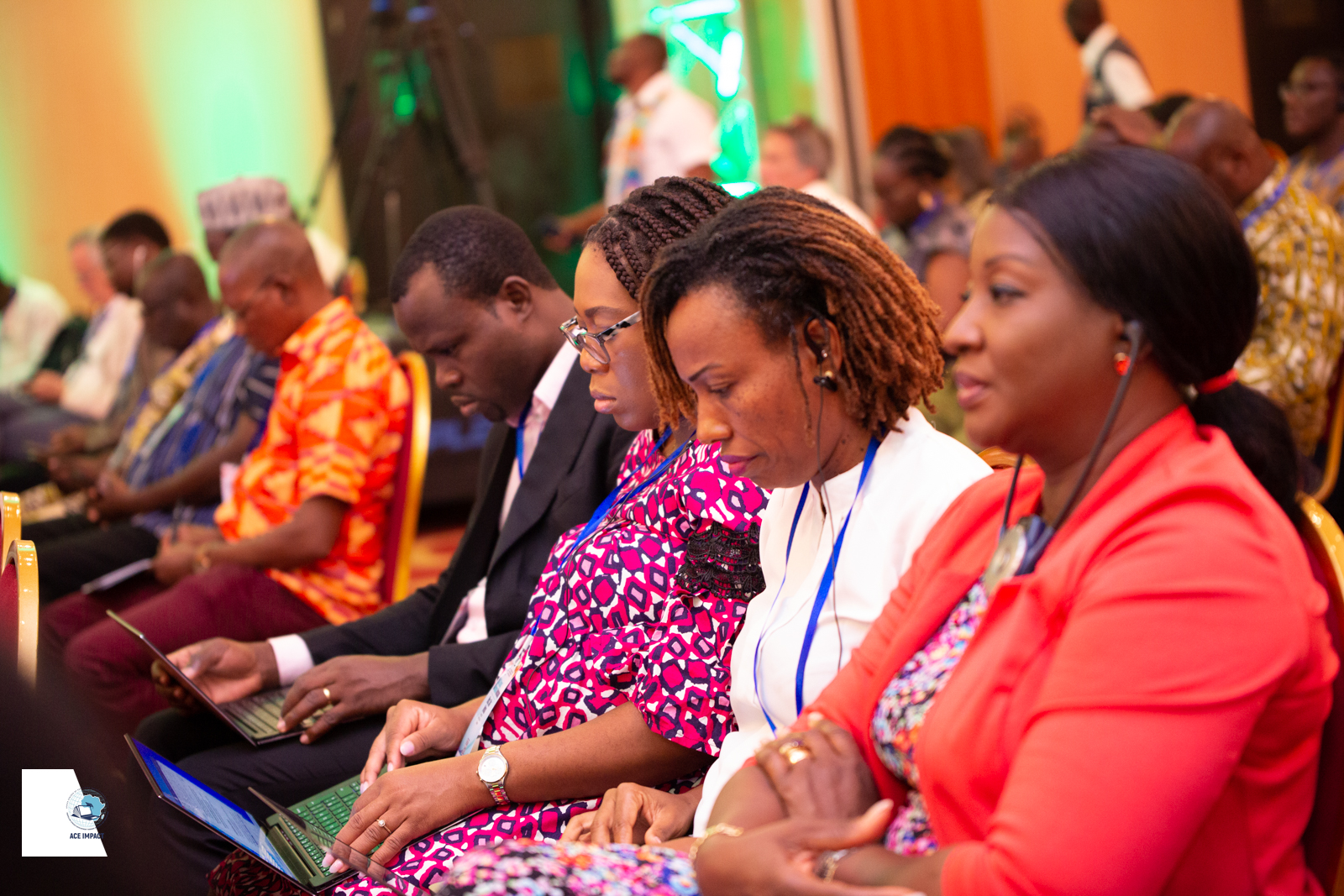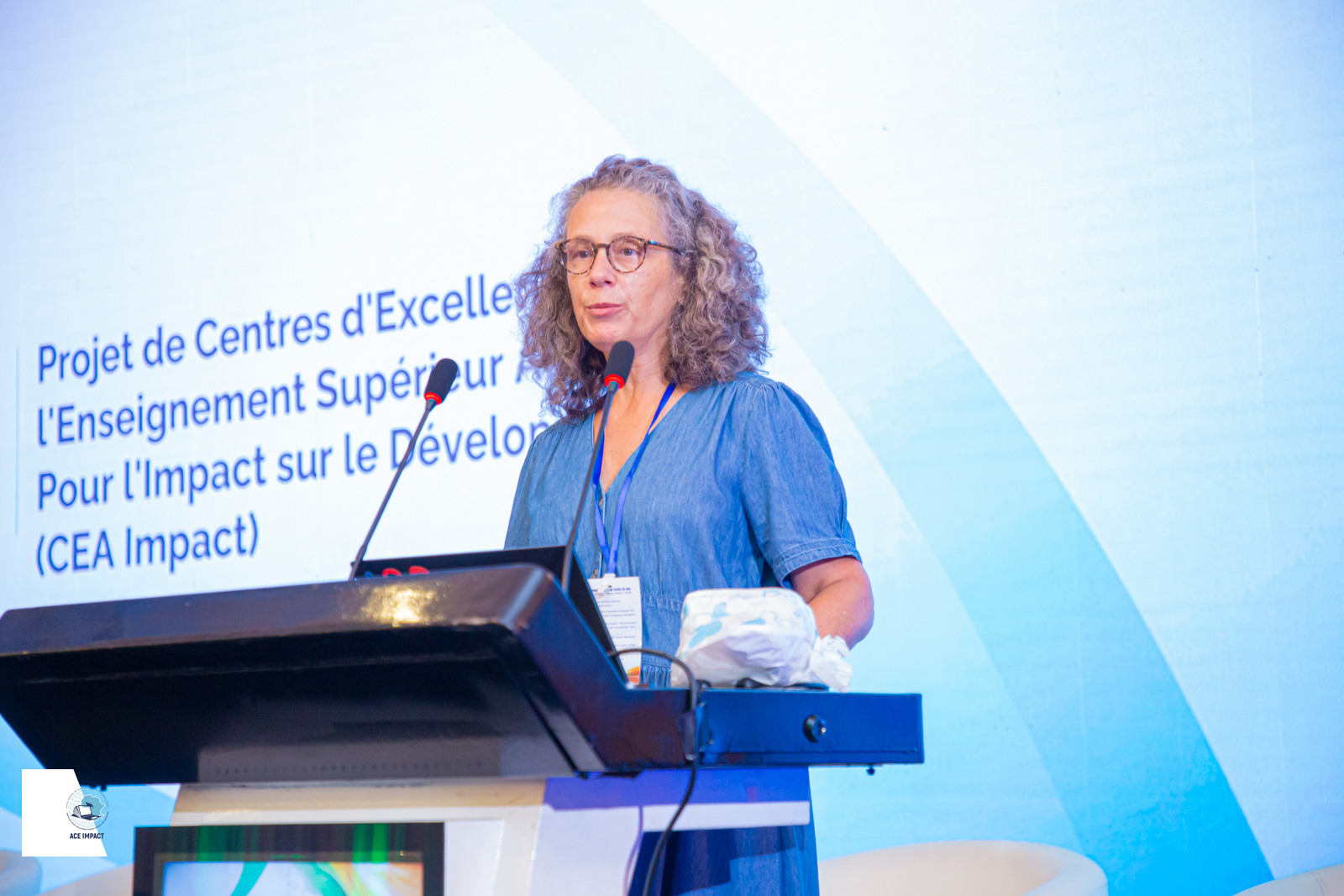One of the key objectives of the ACE Impact Project is to promote regional collaborations and offer scholarships with the goal of catalyzing the growth of these regional partnerships, thereby amplifying the impact in achieving the project’s development objective. The Association of African Universities (AAU) and the French National Research Institute for Sustainable Development (IRD) are supporting the strengthening of the ACE thematic networks among the ACEs and their relevant partners. The goals of these thematic networks are to advance collaboration in cutting-edge research and broaden the ACE Centers’ contribution to the knowledge economy.
Through these regional thematic networks, the ACE Impact Centres can contribute towards accelerating scientific research activities anchored in world class academic practices, strengthen the interlinkages between specialized research centers across ACE Institutions, and deepen partnerships among ACE Impact Centres and collaborators across the continent. There are a total of 12 regional thematic networks supported by both the IRD and The World Bank. These networks cover a range of focus areas, including Agriculture, Health, Education, Energy, Urban and Transport, Environment, Sustainable Mining, Water, Digital Science & Technology, and a network specifically dedicated to Colleges of Engineering. The IRD-supported networks are managed under the IRD’s PARTNERs initiative.
On Friday 3rd November 2023, Dr. Chantal Vernis, the Director of the Department of Research Capacity Building and Innovation for Development at IRD, chaired over the panel discussion concerning sustainability and regional networks.
The panelists who participated were Dr. Gaoussou Camara, who serves as the Coordinator of the Digital Science and Technology Network (DSTN) at Alioune Diop University of Bambey; Dr. Peter Quashie, representing the West African Network on Infectious Diseases (WANIDA) at the University of Ghana, Professor Fifatin François-Xavier, from the University of Abomey Calavi, West Africa Sustainable Engineering Network for Development (WASEND) and Professor Jibrin Jibrin, a member of the Food for West Africa Network (FOOD4WA) at Bayero University.

The objective of the session was to provide an interactive discussion on leveraging regional networks to increase sustainability of the ACE Impact Centres. The moderator posed questions on the value addition of the network in increasing the sustainability of the participating centres and the challenges faced by the networks.
The value addition of the networks in increasing sustainability of the participating centres.
As articulated by Dr. Gaoussou Camara, the African proverb “alone we go fast but together we go further” forms the basis for explaining the enhanced value provided by the regional thematic networks. For instance, conducting collaborative capacity building programmes in research, innovation, entrepreneurship, and technology transfer has proven to be more effective when approached from a network-oriented perspective. This approach offers cross learning opportunities and allows for the leveraging of high-quality trainers, leading to greater effectiveness. These collaborative efforts enable pooling of financial resources, leading to more sustainable impact and efficient utilisation of the limited resources.
Network members appreciate the networking opportunities as they can establish deeper connections with one another, fostering additional collaborative engagements that contribute to the sustainability of the networks. The collective initiatives organized by these networks facilitate profiling the participating centres and empower effective advocacy in garnering support for the work of their centres.
“A regional thematic network must bring value that centres don’t have without the network”, said Dr Peter Quashie from the WANIDA network. The WANIDA network has linked the participating centres to expertise that they lack, fostering robust relationships between colleagues from both Anglophone and Francophone backgrounds. Involvement in a regional thematic network encourages the centres to participate in events and activities that ordinarily they would not do alone, for example the WANIDA startup competition. The WANIDA network has played a pivotal role in enabling student and academic mobility across the network, with support for students attending conferences and publishing their work.
Dr Professor Fifatin François-Xavier explained that through the WASEND network the visibility of the participating centres had been increased. Other value additions of the network included mobility of technicians, mentorship in the research areas, strengthened peer learning among students, learning of foreign languages by students and staff and sharing of digital resources for the benefit of doctorate students.
Professor Jibrin Jibrin said that the FOOD4WA network was registered in Togo as a legal entity to enable it to mobilize resources on behalf of the members. The FOOD4WA network is addressing food security issues and assisting governments with the development of agricultural policies. A recent international conference held in Kano, Nigeria significantly elevated the profile of FOOD4WA network and the participating centres by showcasing their ongoing activities. Professor Jibrin Jibrin further mentioned “We are currently developing inventories of equipment available and research experts available in the network – and this will help us leverage the equipment and expertise resident within the network”.
Challenges faced by regional networks.
Enhancing the governance of the networks to ensure their long-term sustainability emerged as a key focal point in discussions. Establishing a governance structure would facilitate the development and execution of long-term, economically viable funding models for the networks. The absence of a funding model posed challenges for certain centres in securing the financial resources necessary to align their 4-year PhD programs with the project’s 3-year funding for PhD students.
Certain networks have encountered difficulties in coordinating and reaching a consensus on primary activities, particularly in relation to aligning with the ACE Impact project’s timelines and determining the feasibility of various initiatives. The research culture in most African Universities is recently emerging which poses a challenge when expertise in specific areas is required. challenges are being addressed through the provision of translation and interpretation services. This approach is a valuable lesson networks have taken from the ACE Impact project, which consistently provides translation and interpretation support for meetings and associated materials. Networks face challenges with capacity building for researchers in specialized areas such as green hydrogen and others.
Questions from the audience
The audience posed questions that revolved around various aspects including the rationale behind the one-year rotational leadership within the FOOD4WA network. They also enquired about strategies for fostering complementarity among networks instead of fostering competition. Furthermore, questions were raised about the sources of funding for the networks beyond the support from the World Bank and IRD, and methods networks should employ to secure long-term funding.

Responses to questions from the audience
Participants were informed that the annual rotational leadership was informed by the ACE Impact project duration. The funding Models that the networks are using include leveraging funds from other projects, enumerating the successes of the network to justify investments by development partners, centres paying for expert services provided by the networks and developing funding proposals that incorporate overheads for running the networks. The networks also aligned their activities to the ACE Impact project disbursement indicators so that they could earn funds for delivering on those DLIs. Other potential sources of funding include leveraging patents/IPR and charging annual membership fees the member Centres.
The Secretary General of AAU shared that the AAU had established the African Research and Development Networks and Universities to bring together several peer African institutions and researchers that are willing to work together, with a view to generating a critical mass that could more effectively support development initiatives in the continent.
Summary and key recommendations
To create balanced participation by all the Centers within a network there’s a need to cultivate teamwork, clarify roles and responsibilities, assign roles to different centres, consider rotating leadership of the network, and consider full time administrative employees at the network’s secretariat.
To address the challenges faced by the networks, they must amplify everything that they do to create high visibility and attract partners and funders. The goal must be for the networks to be recognized at continental and global levels.
The regional thematic networks must focus on the relevance of what they do. It requires effort to have an efficiently run network and it is possible!
